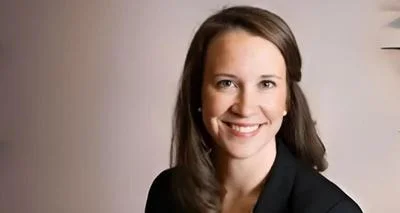Chippewa Valley Technical College recently issued the following announcement.
Police Chief Melissa Chiodo said, at one point during her 25 years in law enforcement, her career lost its shine.
During that time, Chiodo had to take a step back to reflect on why she entered the field. She wants recruits to learn from her highs and lows. That’s what she told about 20 criminal justice students recently at Chippewa Valley Technical College.
“Chief just happens to be my title. I wanted the students to see me as a person,” Chiodo said of her time spent talking to the students. “I wanted them to know why I went into law enforcement and why I continue to do it. I wanted to impress upon them that they need to know their why.”
Now the chief of Inver Grove Heights Police Department in Minnesota, Chiodo was featured in a documentary titled Women in Blue, released in 2020.
When Kyle Roder, a CVTC criminal justice instructor, came across the documentary, he knew Chiodo would be an impactful speaker for students in his class.
In their first semester course, Roder and other criminal justice instructors help students explore professionalism, the use of force, and mental health regarding the community and officer wellness.
“We use different speakers who work in the criminal justice profession to come in each week to share about their own backgrounds, experiences, unique roles in the criminal justice system and their agencies, while also addressing the three main course topics from their own perspective,” Roder said.
Within the coursework, students look at diversity in policing, including females in law enforcement, he said.
The Women in Blue documentary was a great segue into the conversation for Roder.
When he watched the award-winning film, he learned that then-Minneapolis Police Chief Janee Harteau’s goal was to promote more females with her agency, and saw then-Minneapolis Police Commander Chiodo in the film, he contacted Chiodo, and she agreed to speak to the class.
“We are always looking to expose our students to a diverse group of presenters,” Roder said. “We were thankful Chiodo agreed to come to our campus in person and talk to the students.”
Women in Blue
In 2017, film producer Dierdre Fischel was looking for a police department to feature. She wanted to tell the story of women in law enforcement, said Chiodo. The producer went to cities with a significant population and landed on Minneapolis – a department with two female leaders.
When Chief Harteau asked who in the department was interested in being featured, Chiodo opted out.
“I didn’t want anything to do with this,” she said. “My life is pretty boring outside of work. I thought it was done.”
But weeks later, when Harteau suggested Chiodo take the opportunity, she agreed. But she didn’t know what to expect.
“When they follow you for so long, you wonder what’s going to be in there,” Chiodo said of the documentary. After viewing the film, the officers appearing in the film were impressed.
Chiodo said it was comforting to see that women officers have similar struggles and feelings day-to-day.
“I’ve had a lot of women reach out to me. I think (the documentary) really started the conversation,” Chiodo said. “It made it OK to have conversations. We can do the job, and we have unique things we bring to it. It really started a movement on what does it mean to be a woman in policing.
“But at the end of the day, when something goes wrong, we are only viewed as police officers.”
Chiodo wants CVTC criminal justice students to know the emotional ins and outs of the job.
The Future
On the day of Chiodo’s presentation to the class, she left her uniform at home. She wanted students to realize she’s a person first, then a chief.
The students were riveted. They had well-prepared questions for Chiodo, they were engaged, and they received a message about understanding and working with diverse coworkers and community members, instructor Roder said.
“Our goal is to give them real-life perspective to prepare them for their future roles in the criminal justice system so they can best serve our communities,” he said. “This is a difficult time for police officers.”
Fewer people are applying to work in the profession, Roder said.
“Officers are stretched too thin with people outside of the profession expecting too much in areas that often are not police functions,” he said. “We talk about all of this in class – not to be negative, but to be real.”
He said even with heightened criticism, instructors let students know that local law enforcement agencies are not lowering their standards to attract candidates.
“We let our students know that they need to strive to be perfect 100 percent of the time while acknowledging that it is not possible.”
Despite the many challenges students will face in their careers, Roder, a former officer, and Chiodo are passionate about the profession.
“There are wins every day. It’s about recognizing those wins,” Chiodo said. “This has been one of the lowest points as far as public opinion, but we don’t want people to be dissuaded. These students are in the same spot I was 30 years ago – the excitement and anxiety. If they’re already thinking about all of this, they’re already a step ahead.”
Original source can be found here.






 Alerts Sign-up
Alerts Sign-up